Critical Care Medicine Anesthesia Fellowship
Northwestern University’s ACGME-accredited Critical Care Medicine (CCM) Fellowship prepares anesthesiologists for board certification in CCM and careers in both academic and private practice settings. The program offers comprehensive training under board-certified anesthesiology faculty who specialize in critical care and are committed to delivering an exceptional educational experience.
Fellows benefit from hands-on learning in high-acuity environments, multidisciplinary collaboration and exposure to advanced critical care techniques. The program is accredited for a five-year cycle by the ACGME and fulfills all requirements for the American Board of Anesthesiology’s special certification in CCM.
Program Director
R. Alok Gupta, MD, FASA, FCCP
Assistant Professor of Anesthesiology
Fellowship Coordinator
Vi Vos
vi.tran@nm.org
About the Program
Clinical Experiences & Fellow Responsibilities
The management responsibilities of the fellow range from pure consultation services to total patient management. In addition, the critical care medicine fellow supervises anesthesiology, surgery, neurology and neurosurgery residents in the care of these patients. Fellows become proficient in various technical procedures, including transesophageal echocardiography and bronchoscopy. Our goal is to educate well-rounded intensivists capable of caring for all critically ill patients.
Leaders in the Section of Critical Care Anesthesiology are responsible for the following functions, and will give fellows exposure to related management methods and issues:
- Medical direction of cardio-pulmonary resuscitation processes throughout the institution
- Medical direction of the Neurosciences/Spine ICU (23 beds)
- Medical direction of the Cardiothoracic/Transplant ICU (23 beds)
- Medical direction of the PACU
- Medical direction of the blood gas lab
- Medical Direction and clinical coordination of the operating rooms
During the 12-month fellowship, the majority of the time will be spent working with adult critically ill patients. These will be primarily surgical critical care patients, including multiple trauma, spinal cord injury, brain injury or other neurologic insults, cardiac, vascular and thoracic surgeries (including major thoraco abdominal and mechanical ventricular assist devices) in addition to transplantation procedures (cardiac, liver, renal, pancreas).
Additional clinical experiences include general medical critical care (36-bed ICU), Pediatric ICU, acute cardiology (12-bed CCU) and transesophageal echocardiography. Other responsibilities include supervision and teaching of residents and senior medical students and acting as a liaison between the Critical Care Service and other clinical services involved in the care of various critically ill patients.
Clinical Rotations
Neurosciences/Spine ICU
Fellows will become familiar with the diagnosis and management of patients with subarachnoid hemorrhage, spinal cord injury, stroke and intracerebral hemorrhage, increased intracranial pressure, traumatic brain injury and other neurologic problems common to the neurosurgical patient population.
Cardiothoracic ICU
Fellows will become proficient in the perioperative management of patients undergoing cardiac surgery and those with end-stage heart failure. They will also become thoroughly familiar with mechanical circulation assist devices (LVADs, balloon pumps), guidelines of immunosuppression regimens, renal replacement therapies, complex hemodynamic management and echocardiography.
Surgical ICU
Fellows will become proficient in the preoperative and postoperative care of patients undergoing solid organ transplantation, vascular and thoracic surgery, trauma (excluding burns), various oncologic diagnoses and surgical patients with significant comorbid conditions.
Coronary Care Unit
Fellows will become well-versed in the current diagnostic and therapeutic techniques involving the care of patients with acute myocardial ischemia and infarction. This will include anti-ischemic therapy, appropriate interventional therapeutic techniques and arrhythmia recognition and treatment.
Medical ICU
Fellows will gain experience in evaluating and caring for the general medical patient population common to critical care units. This will include the care of patients with acute and chronic lung disease, heart failure, renal insufficiency/failure, hematologic emergencies and infectious diseases common to this patient population.
Echocardiography
Fellows will learn the basics of both transthoracic and transesophageal echocardiography techniques. Fellows will gain experience in performing these procedures and learn about their diagnostic capabilities and limitations.
Electives
Elective rotations on clinical services pertinent to CCM are available. The elective component of the fellowship is flexible and will be tailored to meet the educational needs of individual applicants, as well as their particular interests and desires, wherever possible.
Curriculum
The fellow will participate in the educational processes for co-fellows and residents assigned to the critical care rotation. Fellows will prepare and present lectures for their peers focused on advance critical care concepts and evidence-based clinical management recommendations. Topics to be discussed include:
- Hemodynamic monitoring and support
- Transfusion medicine and Hemostasis
- Airway management outside the operating room
- Trauma management
- Mechanical ventilatory support and the essentials of Respiratory care
- Management of acute organ failure Neurologic critical care
- Metabolic imbalance and renal insufficiency
- Nutritional support
- Sedation/analgesia in the intensive care unit
- End Of Life Care
Fellows participate in the didactic sessions of the general course as both participants and instructors. The lectures that fellows attend reinforce their basic knowledge of CCM, and the lectures that they provide enable them to solidify their CCM concepts. The core lecture series for the CCM rotation occurs daily with increasing complexity over the course of the week and are organized by organ systems. For example, during the cardiovascular week, the first lecture will primarily focus on basic cardiac physiology and pharmacology to be followed by a case-based discussion of end-stage heart failure or acute myocardial ischemia, and lastly the final didactic session will cover treatment options, including mechanical assist devices.
In addition to the CCM rotational lectures, there is a weekly Multidisciplinary Critical Care Fellow lecture series supported by the Trauma Surgery Critical Care and Anesthesiology faculty in conjunction with faculty from various departments within the hospital, including Cardiology, Medicine subspecialists, Neurological Critical Care, Neurosurgery and Surgery.
Faculty Sessions
Faculty address advanced topics with the fellows during one-on-one or very small group (two to four participants) sessions. These topics include:
- Advanced Techniques in Respiratory Monitoring and Mechanical Ventilatory Support
- Lung protective strategies for Acute Lung Injury(ALI)/Acute Respiratory Distress Syndrome(ARDS)
- Biochemical mediators of ALI/ARDS
- Pharmacologic agents for support and enhancement of lung function (nitric oxide, - agonists, anti-cholinergic agents, etc.)
- Respiratory complications and support of acute and chronic spinal cord injury and other neuromuscular disease
- Respiratory evaluation and support of patients with advanced hepatic disease/failure
- Advanced Techniques in Hemodynamic Monitoring and Support
- Current invasive, minimally-invasive, and non-invasive approaches to hemodynamic monitoring of the unstable patient
- Hemodynamic support of the brain injured patient
- Cardiovascular support of patients with advanced hepatic disease/failure
- Infection Management in the Immunocompromised Patient
- Fungal infections: prevention, diagnosis and management
- Anti-viral therapy
- Other opportunistic infectious processes (i.e., PCP)
- Special Considerations in the Neurologically Injured Patient
- Neurologic (brain & spinal cord) protection in the acute phase of injury
- Ethical & legal issues in the declaration of brain death
- Advanced management of patients with complex neurovascular disease
- Hepatic & Renal Disease Management
- Evaluation and management of hepato-pulmonary syndrome
- Considerations in and management of renal replacement therapy
- Diagnosis and management of coagulopathies associated with end-stage liver disease
- Clinical Practice Management
- Payment practices and billing methods (CPT Codes, RUC process, etc.)
- Medical Direction: responsibilities and requirements
- Medical liability and risk management
Simulation Education Program
An important aspect of the didactic program for fellows focuses on computerized clinical simulation. Our goals in this endeavor are to provide an in-depth experience sufficient for the trainee to acquire the skills and competency of a specialist in CCM in the areas of instruction developed to date.
- Emergency and therapeutic treatment of conditionings requiring thoracentesis and/or tube thoracotomy
- Understand the indications and contraindications of tube thoracostomy insertion.
- Demonstrate competency in the technique of tube thoracostomy insertion.
- Command a working knowledge of the principles and set-up of tube thoracostomy drainage systems.
- Demonstrate the ability to instruct others in tube thoracostomy placement.
- Emergency and therapeutic fiberoptic laryngotracheobronchoscopy
- Demonstrate competency in the technique of fiberoptic laryngotracheobronchoscopy.
- Demonstrate technical skills commensurate with a Critical Care Specialist in fiberoptic laryngotracheobronchoscopy.
- Command a solid working knowledge of airway anatomy to permit targeted diagnostic and therapeutic procedures.
- Mechanical Ventilation
- Demonstrate an advanced working knowledge of mechanical ventilatory equipment and monitoring procedures required to ensure proper patient management and ventilator function.
- Formulate and execute a plan of care focused on complex mechanical ventilatory support for various clinical scenarios.
- Diagnosis and management of shock
- Recognize the clinical manifestations of all major shock syndromes.
- Identify and implement management techniques appropriate for specific shock classifications.
- Direct the critical care team in the comprehensive care of a patient exhibiting shock.
- Oversee the management of invasive monitoring systems to ensure accuracy of data utilized in directing patient care.
- Advanced methods of oxygen therapy
- Identify pulmonary conditions that will and will not respond to oxygen therapy.
- Provide a comprehensive assessment of the pulmonary system.
- Assess the need for and appropriate use of high-flow vs. low-flow oxygen delivery systems.
- Understand and impart the limitations and abilities of the various oxygen delivery systems.
- Formulate and execute a plan of care to meet the changing oxygen demands of a critical care patient.
- Emergency and therapeutic placement of pacemakers
- Demonstrate knowledge of the indications and contraindications for pacemaker support, both transthoracic and transvenous (all types).
- Set up and execute the application of emergency transthoracic and transvenous pacemakers.
- Command a working knowledge of the equipment and monitoring procedures necessary to ensure successful application of an emergency pacemaker, both transthoracic and transvenous.
Research
Fellows are strongly encouraged to develop individual clinical research projects or to participate in any of the ongoing clinical research projects of the Critical Care Section. Fellows will receive guidance on the development of research plans and the implementation of clinical research projects, which encompass drug and device development, epidemiologic outcomes in critical care, and projects in simulation education.
Evaluations
Fellows will take a nationally provided, written, in-training examination sponsored by the Society of Critical Care Medicine. This examination will serve as both an evaluation tool and as preparation for future board certification testing.
Fellows receive daily feedback on their performance during rounds and in routine patient care. Evaluations are conducted monthly, and any difficulties are addressed promptly with appropriate feedback. Fellows meet with the program director quarterly to review the assessments of all faculty members as reported to the departmental clinical competence committee.
Subspecialty fellowship education remains a privilege for the Department of Anesthesiology’s Section of Critical Care Medicine at Northwestern University, which provides trainees with facility in the most complex behaviors of Bloom’s cognitive, affective and psychomotor domains.
Benefits
In addition to McGaw Medical Center of Northwestern University benefits and wellness resources, Critical Care Medicine fellows receive:
- $700 education fund for e-books or e-learning devices
- Memberships in the Society of Critical Care Anesthesiologist and Society of Critical Care Medicine (SCCM)
- Funding for one continuing medical education meeting, either the ASCCA/ASA or the SCCM
- Funding for an additional academic/research meeting; fellows who present an abstract at a national meeting/conference will receive funding for their trip, provided the program director approves the absence from training
- ATLS and PALS certification
- Paid registration for the MCCKAP (in-training preparation for the CCM certification exam)
- Dedicated office space with desktop computer
- Membership in the Society of Critical Care Anesthesiologists (SOCCA)
- Paid registration for the ABA Critical Care ITE Exam
Faculty
How to Apply
To be considered for a Critical Care Medicine fellowship position, candidates must be eligible for certification or fully certified by the American Board of Anesthesiology before fellowship training begins.
Candidates must have taken USMLE Step 3 and obtain a temporary or permanent Illinois Medical License before starting their fellowship training. Licensing information and application can be found at the Illinois Department of Financial & Professional Regulations website. To apply for a permanent license, the applicant must already have taken the USMLE Step 3. Please be aware that it may take up to 60 days to process and grant an Illinois license.
We participate in the San Francisco (SF) Match. For more information about the SF Match, please visit their Critical Care Anesthesiology Fellowship page.
Current and Recent Fellows
Class of 2026

Residency: Advocate Christ Medical Center
Medical School: Advocate Health Care
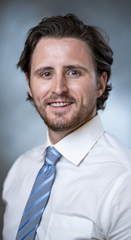
Residency: Advocate Christ Medical Center
Medical School: Advocate Health Care

Residency: University Hospitals Cleveland Medical Center
Medical School: Case Western Reserve University

Residency: Loyola University

Residency: Acension Illinois
Class of 2025

Residency: Northwestern University
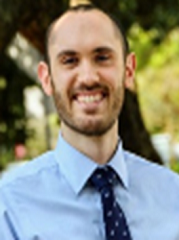
Residency: Northwestern University

Residency: Loyola University

Residency: Acension Illinois
Class of 2024
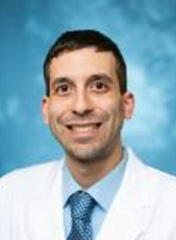
Residency: Texas Tech University Health Sciences Center
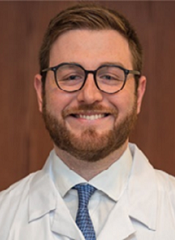
Residency: AMITA Health Resurrection Medical Center
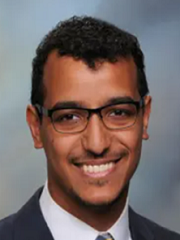
Residency: University of Massachusetts Bay State Medical
Class of 2023
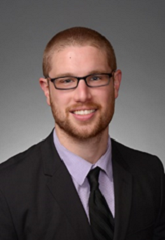
Residency: Advocate Christ Medical Center

Residency: AMITA Health Resurrection Medical Center

Residency: Brigham and Women's Hospital

Residency: SUNY Upstate Medical University
Graduate Research Resources
We offer a wide range of resources, mentorship opportunities and training to help our residents and fellows excel as physician-scientists. Explore all of the resources and hear from trainees who are making research a major part of their career development plans.